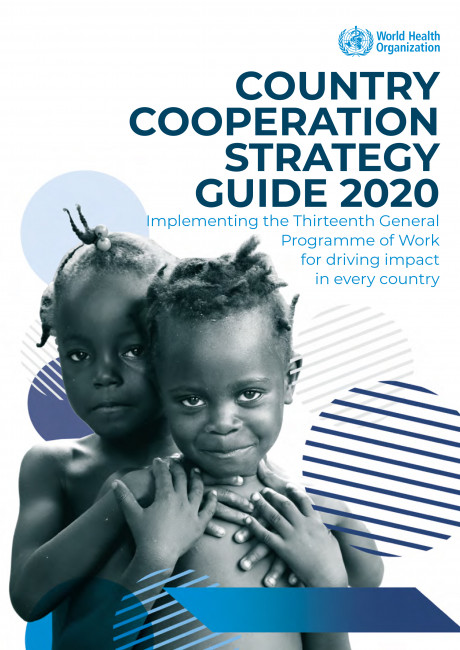The Country Cooperation Strategy (CCS) is WHO’s strategic framework to guide the Organization’s work in and with a country. It responds to that country’s National Health and Development Agenda and identifies a set of agreed joint priorities for WHO collaboration, covering those areas where the Organization has a comparative advantage in order to assure public health impact. The CCS is WHO’s corporate framework strategy to implement the Thirteenth General Programme of Work (GPW13) with a response to country needs and priorities and addresses the Sustainable Development Agenda in health-related Sustainable Development Goals (SDGs).
The Country Cooperation Strategy Guide (2020) is designed to be a practical tool kit, providing a step-by-step approach to the development process and setting out the key components for producing a concise and evidence-based CCS. This guidance document has been developed to assist all stakeholders involved in drawing up the CCS. The six stages for successful development, implementation and evaluation of the CCS are explained in this CCS Guide. A CCS prototype document is available as a companion to the CCS Guide and can be used as a template to assist countries in developing their own CCS.
This CCS Guide applies to all countries for which WHO provides technical assistance, regardless of whether the Organization has a dedicated Country Office or provides support from another country or Regional Office. It is flexible enough to allow countries in conflictual and fragile situations as well as high-income countries to follow a similar approach.



